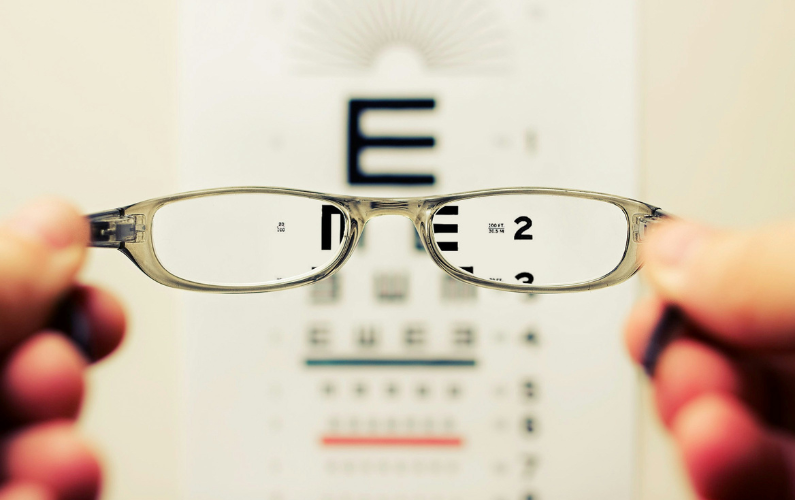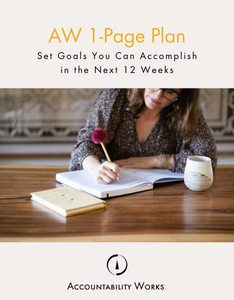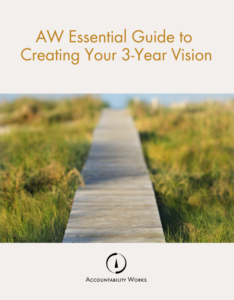As you may know, we define Mindful Accountability as observation without judgment. Our work is based on the observer effect, meaning that the act of observation changes the phenomena being observed. In this case, the act of observing you means that you are more likely to do what you say you want to do.
Mindfulness defined
The American Psychological Association defines mindfulness as:
Awareness of one’s internal states and surroundings. Mindfulness can help people avoid destructive or automatic habits and responses by learning to observe their thoughts, emotions, and other present-moment experiences without judging or reacting to them.
In our practice, Mindful Accountability means observing whether or not a person did what they said they were going to do and not judging the outcome. We rely on the act of observation itself to influence behavior.
Accountability gets a bad rap
Accountability often gets a bad rap because it can be associated with blame, doing something wrong, or getting in trouble. We know that type of accountability doesn’t work. Despite cultural norms that insist we must be hard on ourselves to change, BJ Fogg (2020) asserts that people “change best by feeling good.” (p.161) That can be difficult for our clients to believe and practice because, oftentimes, they’ve spent a lifetime berating themselves for not doing more. They may even have signed up for our program, thinking we were going to spur them into action by being hard on them.
It’s very counterintuitive for most people to realize that being in an accountability group feels good. Having a supportive group of people that want to see you succeed while adding their own insights and sharing their vulnerabilities helps everyone. Together, we celebrate what got done and learn from what didn’t. Our superpower is not our judgment or social pressure but the attention we provide.
Observation requires attention
The act of observation requires attention. I have to pay attention to you while you explain what happened. If you succeeded, paying attention to what worked and what you learned. Or if you didn’t do something you set out to do, we seek to understand what got in your way, what resistance came up, and how you handled it. Attention is the motivator, not judgment. If you felt judged over time, you would be less forthcoming, less willing to commit, and less willing to share your experiences. However, when you are really listened to and asked questions, that retelling of your experience allows you to understand yourself better, and that attention helps you move forward.
I loved the podcast conversation between Esther Perel and Brené Brown where Esther shared this insight about how listening impacts both the listener and the person receiving the attention:
“And that means singular, focused attention. Deep listening. Why? Because listening is not just what happens to the person who listens. The listening is what shapes what the person will tell. The listener creates the speaker, the openness, what you divulge, how you connect, how vulnerable you are.” (Perel, 2024)
How can we not judge?
Don’t we all judge whether we mean to or not? The answer to that is no, not if we are paying attention. It’s only when we stop paying attention that judgment is introduced. Judgment interrupts attention. If that happens, you go back to paying attention, staying curious about the situation and continuing to listen and ask questions, hence providing mindful accountability.
Judgment is tricky because it pulls our attention away, shuts down the speaker, and introduces bias and noise. We are not machines that measure things predictably. When you introduce judgment, you introduce errors based on past experiences and your current feelings.
Our process
In our process, we rely on observation to influence outcomes. We combat judgment by paying attention, staying open, curious, and deeply listening. These are skills as coaches that we’ve developed through our training and practice but that we still work on and refine all the time. When our clients succeed, we celebrate with them, and when they meet challenges, we dive into them. Over and over again, we see the impact this has on our clients and their ability to change, grow, and reach their goals. We know that the secret to effective accountability is to stay present and pay attention—to observe without judgment.
Reference list:
Fogg, B. J. (2020). Tiny Habits: The Small Changes That Change Everything. Houghton Mifflin Harcourt.
Perel, Esther. (2024, March 31). Esther Perel on New AI – Artificial Intimacy. Where Should We Begin? Esther Perel Global Media. https://podcasts.apple.com/lu/podcast/esther-perel-on-new-ai-artificial-intimacy/id1237931798?i=1000650835880



